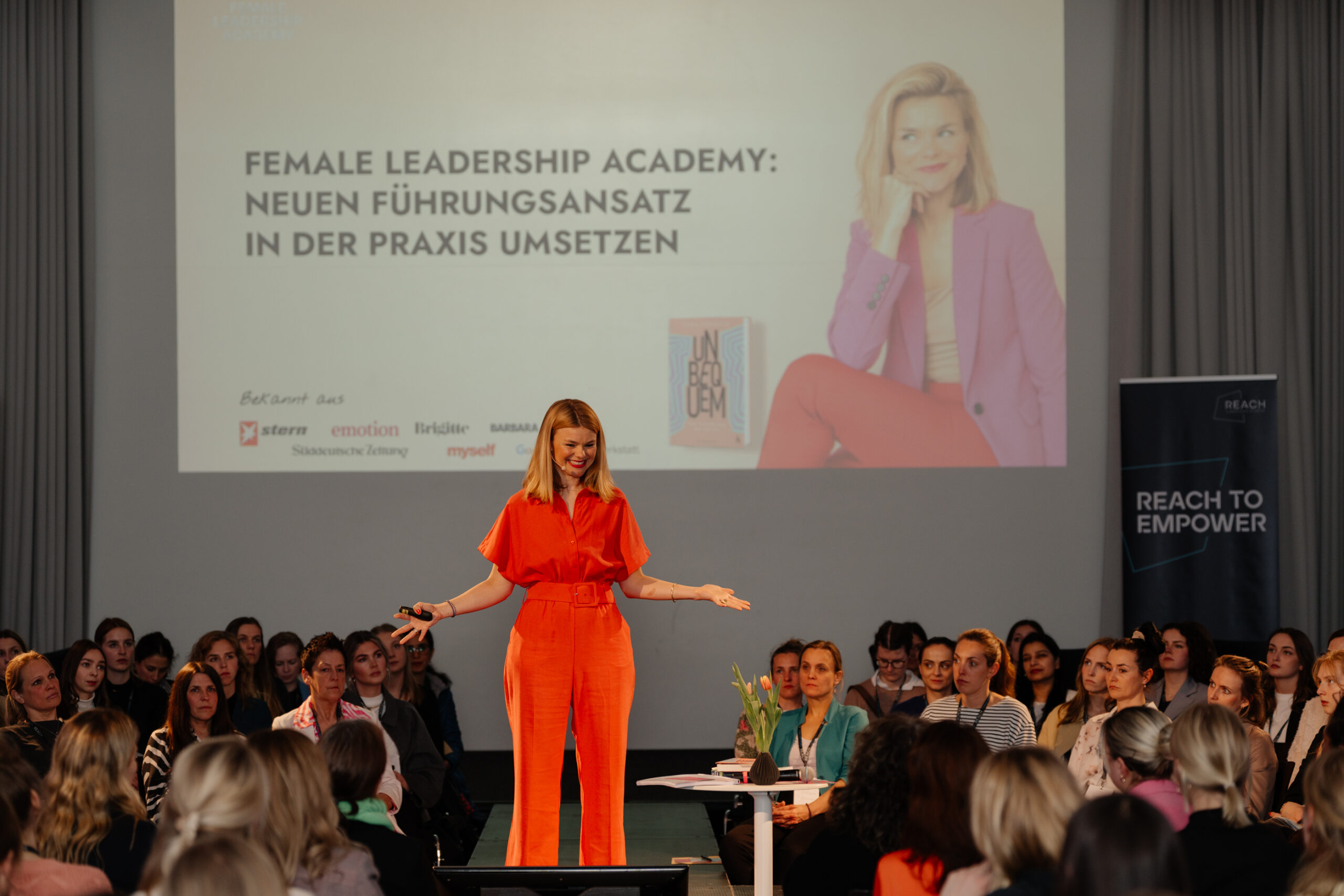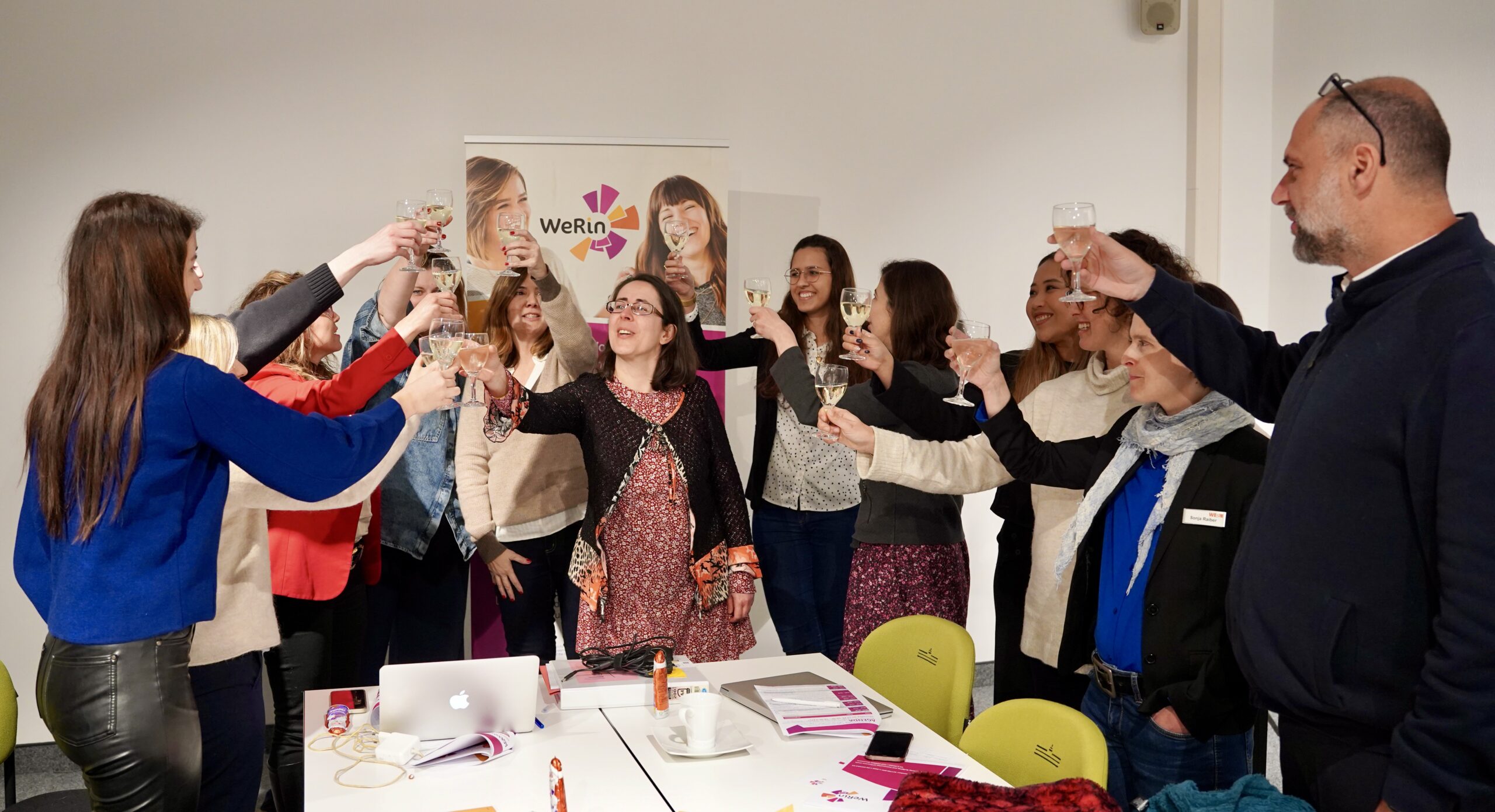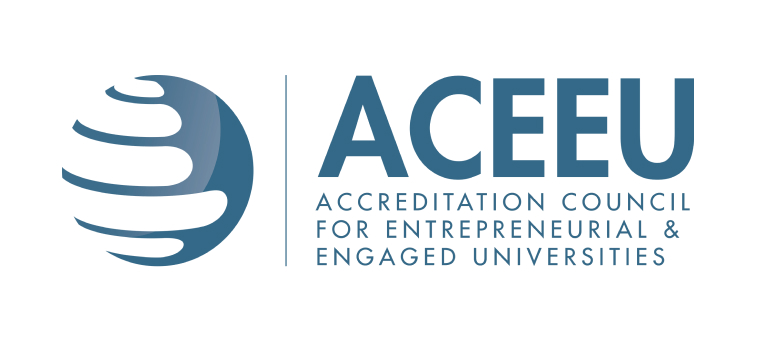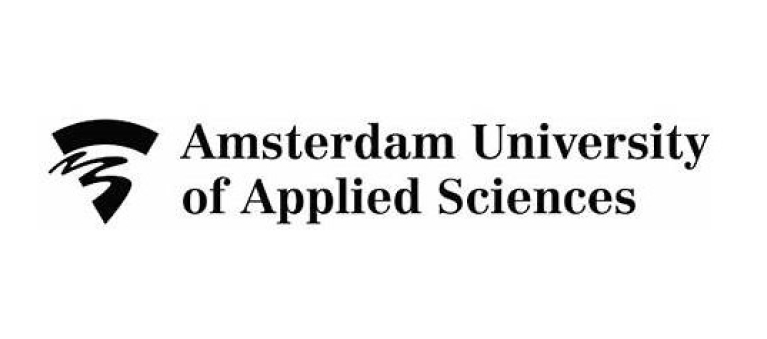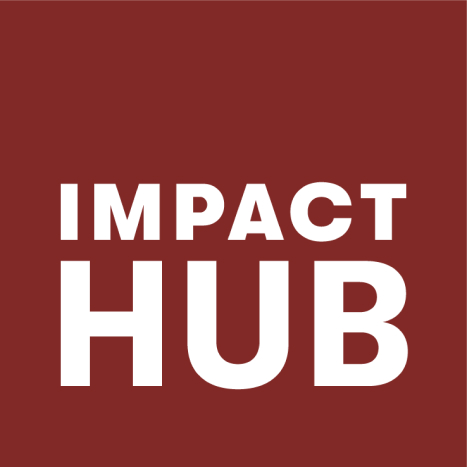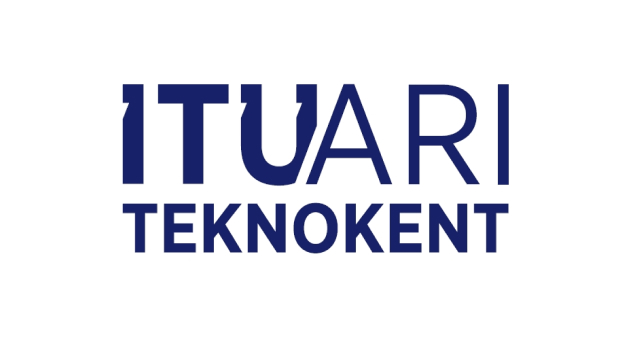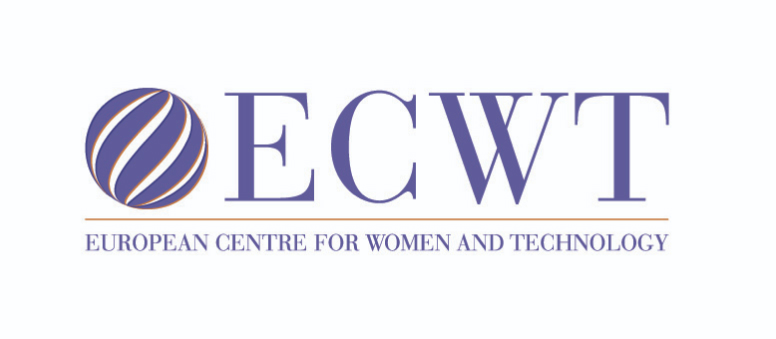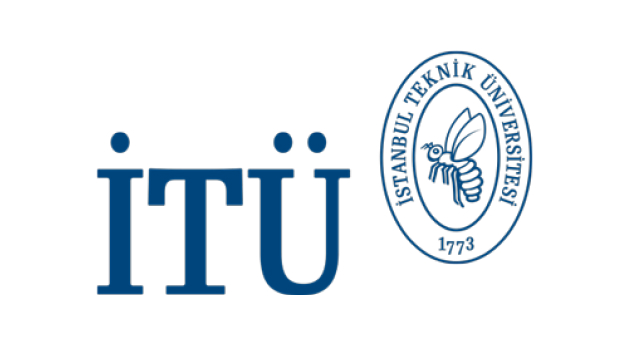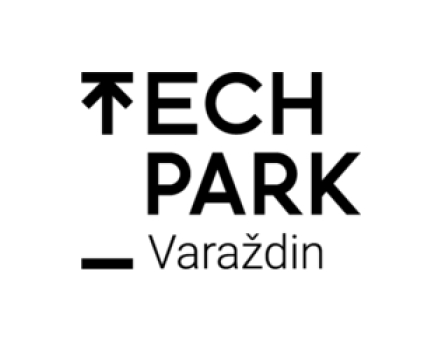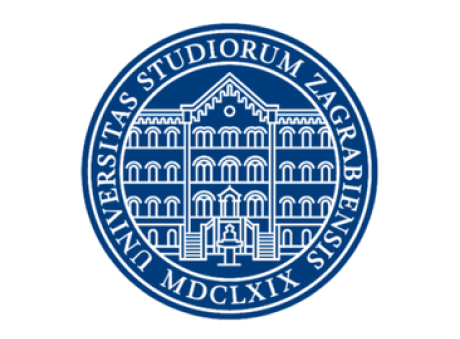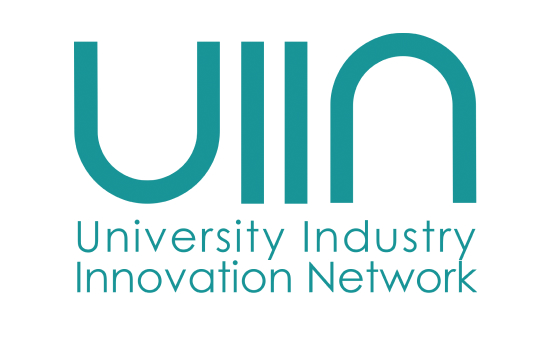By Camila Molina and Hugo Buitrago (ACEEU)
Entrepreneurship and innovation should become a source of opportunities to help societies to construct well-being for all. The gender gap seems to be a worrying inequality that can be addressed to reduce its impact on women. Gründen NRW (the platform for entrepreneurship from the Ministry of Economics, Innovation, Digitization and Energy of the State of North RhineWestphalia) found that in its entrepreneurial ecosystem, between only 11 to 29 per cent of the entrepreneurs are women (studies have produced diverse results).
The region is addressing the gap with diverse strategies that are generating trends in female entrepreneurship and may consolidate as practices that guarantee gender equality in the search of inclusive societies. In this article, we present five recent trends in North Rhine-Westphalia that frame the initiatives and the consolidation of gender-inclusive entrepreneurial ecosystems.
These initiatives articulate diverse actors of the ecosystem such as the regional government, banking industry, higher education institutions, and aspiring and consolidated female entrepreneurs. These are the five trends in female entrepreneurship in North Rhine-Westphalia, Germany.
Trend #1: Strengthening of gender-inclusive entrepreneurial ecosystems
North Rhine-Westphalia has set the goal of increasing the number of women starting their own businesses to 33% by 2025. A recent opinion study found that despite that there are more than 32 % of women who would like to start their own business, less than 29 % dare to do so.
This mismatch between aspirations and actual action inspired the state Ministry of Economy to set the 33% goal. For achieving this goal, a comprehensive strategy was launched. It includes the creation of services such as a Women Entrepreneurship Centre, a women’s mentor network, advice for women starting up in business, the Female Innovation Hub, and the Global Digital Women Initiative.
These initiatives tailor services to support women from different backgrounds to successfully start their own businesses, aiming to contribute to the closing of the existing gender gap in the entrepreneurial ecosystem.
This way, entrepreneurship could become a source of opportunities for all, having equality as a solid basis. For more information visit the Ministry for the Economy, Innovation, Digitalisation and Energy in the state of North Rhine Westphalia

Trend #2: Opportunity as a driver for female entrepreneurs
The group of female entrepreneurs who opt for self-employment, despite the good labour market conditions, are mainly driven by the fact that they have a potentially scalable business model idea and they want to implement it. It is also observed that more previously inactive people— i.e., housewives and students—are starting businesses. This is a trend that has been easily observable in their dynamics for several years now (1).
Against this background, women also start a business with the goal to “make a difference” and “effect a change.” yond the legal requirements and are more open to the issue of corporate social responsibility (2).
Lastly, employment status is also a decisive factor for starting a business; almost half of the women decide to become self-employed from dependent employment. Accordingly, only very few women start their businesses directly after completing their education. Instead, they first gain a few years of work experience (3).
On the other hand, a 2011 study by the German Federal Ministry for Family Affairs, Senior Citizens, Women and Youth (BMFSFJ) also describes the tendency for more and more women over 50 to start their businesses. At this age, successful female managers are looking for new ways to implement their interests, convictions, and experience by creating their own businesses (4).
It should also be noted that female entrepreneurs have higher educational qualifications than men, and more self-employed female academics among them than among men (5). This trend is also confirmed by the results of the detailed evaluation of the KfW Start-up Monitor 2009, which found an overall better level of education among female founders compared to male founders, measured by the degrees they have attained (6).
Overall, it shows that a large proportion of female founders have an “apprenticeship or vocational degree “(7). Given this trend, the former German Minister for Emancipation, Barbara Steffens, states that female entrepreneurs in the North RhineWestphalia are creative when it comes to finding ideas; they pool their professional experience and often occupy niches with their businesses that have not been seen before. In this way, the business fields are as diverse as the reasons why women have chosen the path of self-employment. In addition, it is noted that female entrepreneurs in the region are highly qualified and possess qualities such as communication skills, a sense of responsibility, and foresight (8).
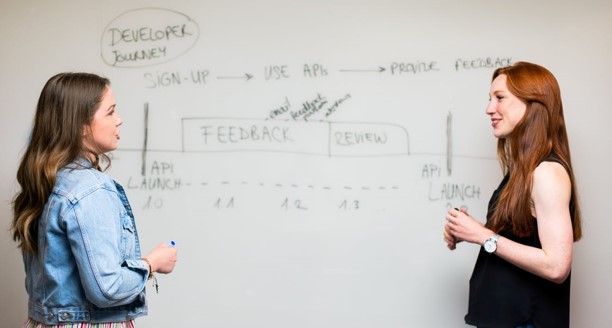
Trend #3: Growing access to grants and financing facilities for female entrepreneurs
The NRW Bank introduced specialized services of advice for women starting businesses and seminars that consolidate the image of businesswomen as important actors in the entrepreneurial ecosystem. This initiative is articulated by the Enterprise Europe Network (NRW.Europa), the world’s largest network supporting and connecting companies, universities, and research institutions. In North Rhine-Westphalia, the network is articulated with ZENIT GmbH (Mülheim), NRW.BANK (Düsseldorf and Münster) and NRW.International GmbH (Düsseldorf).
The Enterprise Europe Network launched the Women Entrepreneurship Sector Group offering services such as connections with clients, cooperation with partners, access to innovation services and financial instruments, and articulation of existing woman entrepreneurship networks. Access to an ecosystem of services and support plays a vital role in the promotion of female entrepreneurs to emerge in the region and to expand start-ups and different projects at an international level. 15 On the other hand, one of the most popular and supportive initiatives for entrepreneurs and especially for female entrepreneurs is the Gründerstipendium NRW.
This grant offers entrepreneurs the opportunity to launch their innovative business idea and enter the start-up scene in their region. In this way, The Ministry of Economics, Innovation, Digitalization and Energy of the state of North Rhine-Westphalia supports every founder who is about to or at the beginning of setting up a company with a monthly grant of 1,000 euros for up to one year to help them get started in the world of entrepreneurship.
Trend #4: Consolidation of regional networks with the support of higher education institutions
Within the framework of the project Women Entrepreneurs in Science, the Bergische Universität Wuppertal (University of Wuppertal), established a state-wide higher education network for women starting their own businesses. This project is coordinated by the Excellence Start-up Center NRW of the university and aims to establish a cross-university network of female founders in the region. This way, the network will increase cooperation among female academic entrepreneurs, create visible role models, and develop a female start-up culture. Women founders’ summits, women founders’ round tables, and speed dating events for women are held regularly in this network. Future female founders at universities in North Rhine-Westphalia and in other higher education institutions can also get advice from this network. Within the initiative, there is also an incubator program to support female entrepreneurs and their companies at universities and establish a mentoring network.

Trend # 5 : Creation of mechanisms for encouraging females to develop their start-ups and spin-offs.
The visible gender gap in entrepreneurship is leading universities to take action to support women in their way to construct networks and role models in the start-ups, spin-offs, and business world. Ruhr-Universität Bochum (RUB) identified that only 16 % of the participants in their Worldfactory Start-up Centre were women. They state that the problem is not the lack of good ideas, but the lack of self-confidence, networks and female role models. It poses the question, what are effective supports to increase the participation of women founders of start-ups and spin-offs?
Certainly, there is no unique answer to the previous question, but one initiative that could be highlighted as a good practice in the field is the launching of programs with a gender focus. RUB launched in 2000 the program FACE@RUB (Female Academic Entrepreneurs at RUB). This program is embedded in the Worldfactory Start-up Centre, a unit that incentivises the creation and development of start-ups and is supported by the Ministry of the Economy, Innovation, Digitalisation and Energy for North Rhine-Westphalia. RUR connects the specific gap with the already constructed capacities in the university and the state funding to support such initiatives.
The previous examples of trends and action in gender inclusion in the regional entrepreneurial ecosystems present a panorama of action taken to ensure the construction of more equitable societies. This regional context demonstrates that it is necessary to tackle inequalities in the consolidation of entrepreneurial ecosystems to introduce measures for mitigating the exclusion of certain segments of the population. Gender inclusion is one affirmative action, among many other needs that also require concrete action for avoiding negative impacts.
References:
(1) Bundesministeriums für Wirtschaft und Energie –
BMWi, 2018
(2) (4) BGA Bundesweite Gründerinnenagentur,
(3) cf. Josten et al., 2008
(5) cf. Bührmann and Pongratz, 2010
(6) cf. KfW Research, 2009b
(7) cf. KfW Research, 2014a
(8) Landesregierung NRW, 2011


